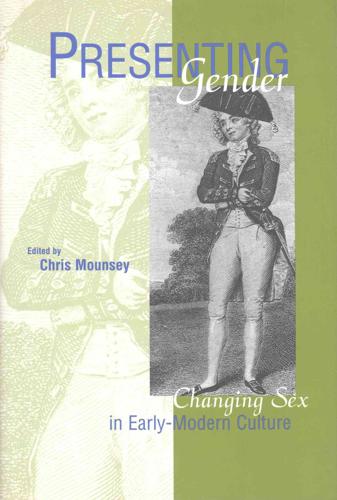Publisher's Synopsis
Presenting Gender engages with one of the most intriguing aspects of Early Modern and Enlightenment culture: gender passing, the phenomenon of passing oneself off as a member of the opposite biological sex. This collection of ten historically informed and theoretically sophisticated essays by European and American scholars employs "passing" as a pivotal practical, ideological, and textual term for investigating the relations among gender, sex, subjectivity, politics, and economics in a wide range of texts and social and cultural practices during the period 1600-1800. The relations between sex and gender, and biology and culture are found to be imbricated but not indissociable. Together, the contributors demonstrate that the identification of passing with sexual motivations suggested that the sexual body was perceived to be stable, though capable of being categorized into more than two sexes, while the association of passing with political motivations tended to privilege the body's cultural construction. At the same time, the contributors find a reverse set of polarities to be true for gender. Those who passed in early-modern and eighteenth-century culture for sexual reasons suggested that gender was unstable, while those who passed for political reasons suggested its stability. Rich in detail and methodologically rigorous, Presenting Gender makes a significant contribution to our understanding of the shift from Renaissance and Restoration to Enlightenment understandings of identity generally, and sexual identity specifically, and will complicate the hitherto rather rigid periodization of the years 1600-1800.












